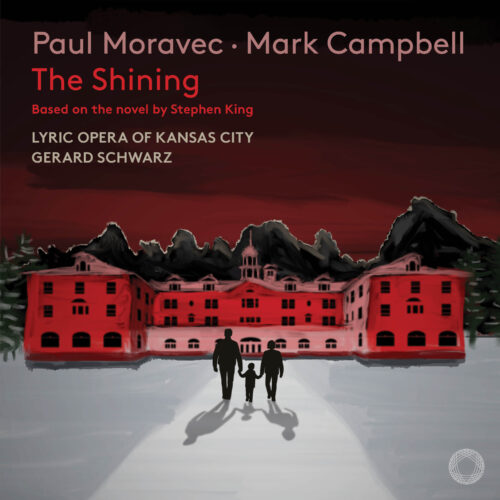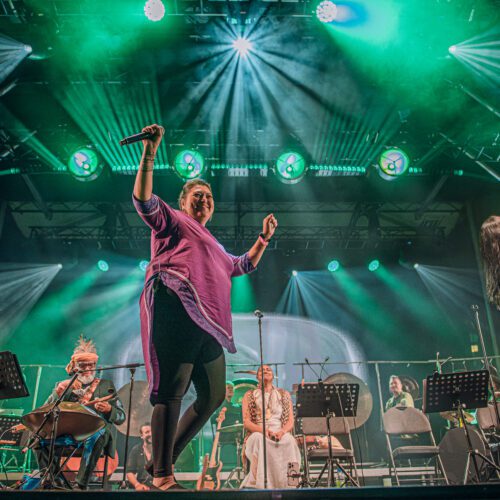An opera version of horror literature’s masterpiece The Shining? You bet. It’s not even surprising: this story has everything it takes to be staged. Composer Paul Moravec claims that The Shining deals with the three fundamental subjects of operatic art in general: love, death and power. I guess he’s right. Of course, Stanley Kubrick’s film version is an achievement in itself, both visually and in terms of Jack Nicholson’s acting, transcendent in its insanity. But don’t get too attached to this incarnation of Stephen King’s character and script, or you’ll be disappointed. After all, who could match King’s vision and Nicholson’s performance? And an opera singer at that?
So we have to go back to the original material (King’s novel), as Moravec and Campbell (the librettist) do. As a result, we have access to a content rich in almost infinite scenic and musical potential, from a fresh perspective. Mark Campbell (who also penned the libretto for Silent Night, with music by Kevin Puts) respects the story’s major dramatic arcs, while adding extra soul to the father, Jack, whose past we glimpse as a victim of abuse by his own dad. Campbell also adds a more honorable ending to Jack’s character by having him choose to let the boiler explode, destroying the hotel and himself at the end.
Moravec employs a chromatic palette oscillating between atonalism and saturated tonality, and appropriately sprinkles his score here and there with ghostly choruses, a childlike ritornello tinged with menace and other quite effective expressive colors. The sonic result is a cross between the music of Hollywood’s Golden Age and the Second Viennese School. The dramaturgy is skilfully enhanced, although your humble servant would not have disliked a little more cinematic melodicism sparingly deposited, to propel the ensemble above a certain moderno-lyrical generalism.
The vocal soloists are good, with the exception of soprano Kelly Kaduce (Wendy), whose generously large vibrato quickly becomes irritating. Edward Parks (baritone) is very solid in the role of Jack, whose descent into dementia is highly credible, if rather too fast. But that’s the way the opera’s relatively short duration dictates. There’s also an impressive performance from the young treble Danny (Tristan Hallett) in a demanding role for a child of his age. The other characters are convincing, especially with the support of Moravec’s music, which embodies them with vitality.
Few caveats aside, The Shining is a new opera of the highest quality, which hits the mark in terms of appeal while remaining serious and demanding. Its potential for success with both the general public and discerning music lovers makes it a work to remember for opera company programmers. Take note.
























